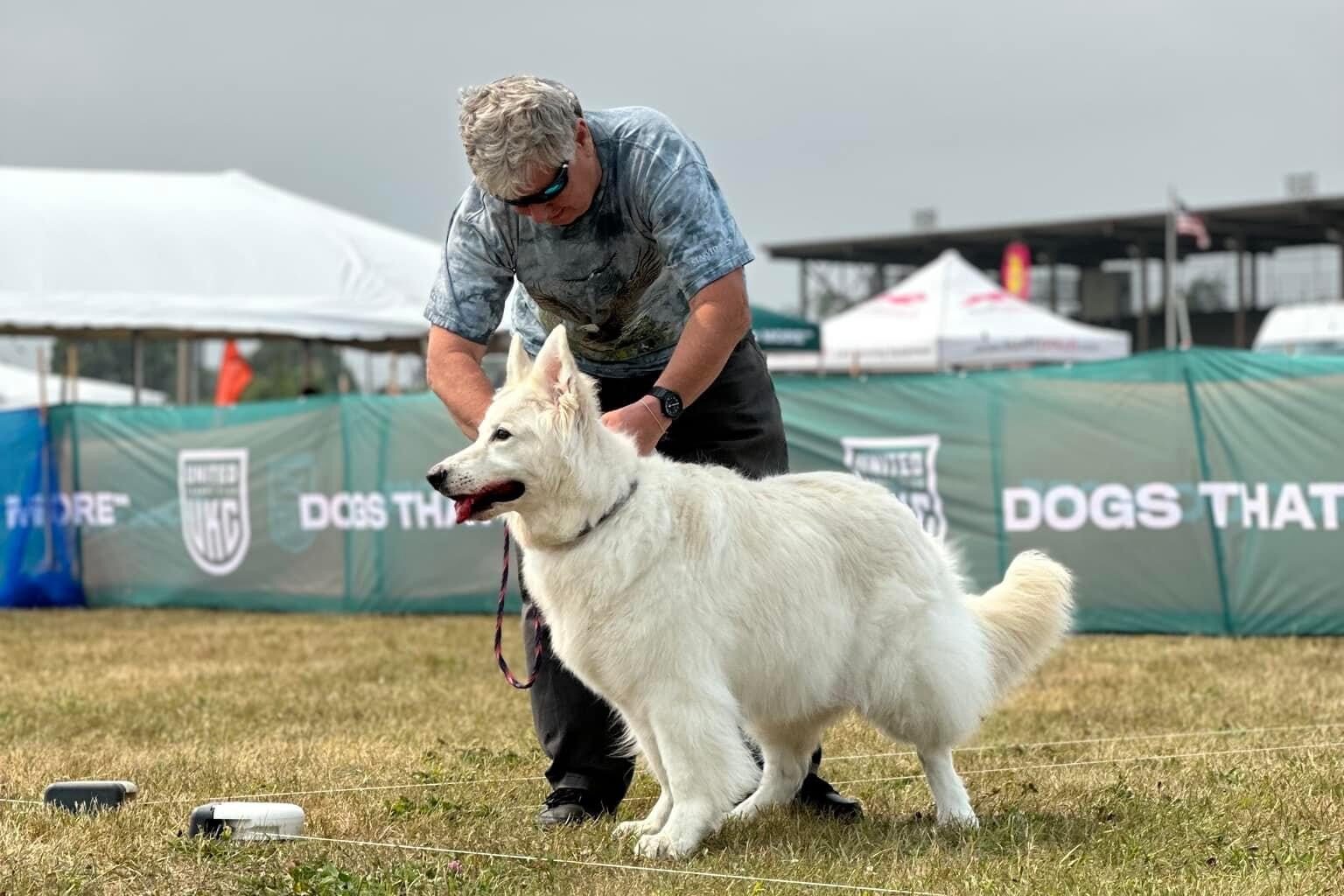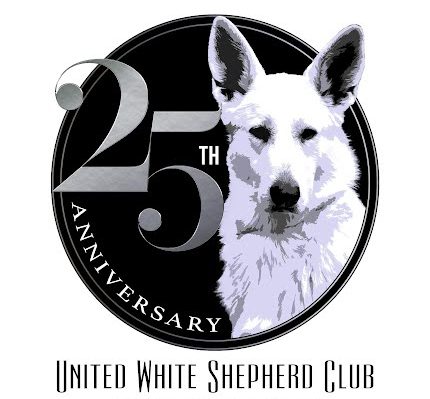
As a breed, the white shepherd is overall a very healthy and athletic dog. Our members are to use conservative breeding practices and are encouraged to test for any genetic anomalies that they are able, in order to make the best decisions in planning a breeding. Health and temperament are to be held at as high of standards as that of conformation. White shepherds live upwards of 13 years, and careful breeding practices will help to ensure longevity. Good temperaments and proper socialization ensures that we can stand to live with our dogs that long. With that in mind, we recommend that breeders and prospective puppy buyers be aware of genetic and environmental issues that can affect the lives of our dogs.
Food and water
Clean water must be available at all times. Care should be taken so that water dishes are not tipped easily. Dogs should be fed at least once daily. A balanced diet is necessary for good health. Food containers must be cleaned regularly. Special attention to feeding times is required in a multi-dog confinement area to ensure that each dog receives adequate nourishment.
Shelter
All dogs must have access to dry, weatherproof housing. The shelter must be properly maintained in relation to weather conditions. Regular inspections of housing is necessary to ensure sanitary bedding and protection from objects harmful to pups and adults.
Whelping area
The whelping area must be a warm, clean and roomy area segregated from other dogs, with easy accessibility for cleaning and inspection. For both pups and mother, the kennel owner must provide a healthy whelping area for maximum growth, survival, exercise and socialization with humans.
Confinement
Each litter must be segregated or properly identified. Dogs must be confined in such a manner that prevents their escape yet provides adequate room for individual mobility. Crated dogs must have an exercise area and receive adequate exercise daily. Females in season must be separated from males (other than the male she is bred to) for the entire heat cycle.
Safety and protection
The kennel owner must ensure that dogs kenneled together are compatible and not in danger of injuring one another. Dogs must be protected from stray and wild animals and from objects harmful to pups and adults. Adequate fencing is required.
Healthcare
Vaccinations must be administered in accordance with local and state requirements. An internal and external parasite control program must be maintained. Sick dogs must be separated from general kennel population. Bathing/grooming should be administered as required by breed to maintain proper health conditions.
Socialization
A daily regimen of human interaction is necessary to ensure the development of good temperament for all dogs; especially for pups.
Waste disposal
Waste must be removed in accordance with accepted local, state, and federal requirements. The kennel area must be cleaned of all feces and urine daily. Solid waste must be removed from the kennel area.
Record keeping
Individual health records must be maintained for each dog. All breedings must be recorded as well as the resultant litters from those breedings. A sales record indicating to whom each dog is sold is necessary. The “Official UKC Breeder’s Record” was designed to assist breeders with record keeping. It is issued free of charge each time a litter is registered with UKC. All dogs must be easily identified within the kennel operation. The kennel owner must have complete and accurate registration documents for all UKC registered dogs. Kennel owners must meet all local, county, state and federal government requirements for kennel operations. United Kennel Club, Inc. reserves the right to inspect kennels at any time and to DNA-profile any dogs pursuant to the maintenance of the integrity of UKC records. A person who refuses inspection of his/her kennel or refuses to consent to DNA-profiling of a dog over which he/she has legal control may be barred from all United Kennel Club privileges.
